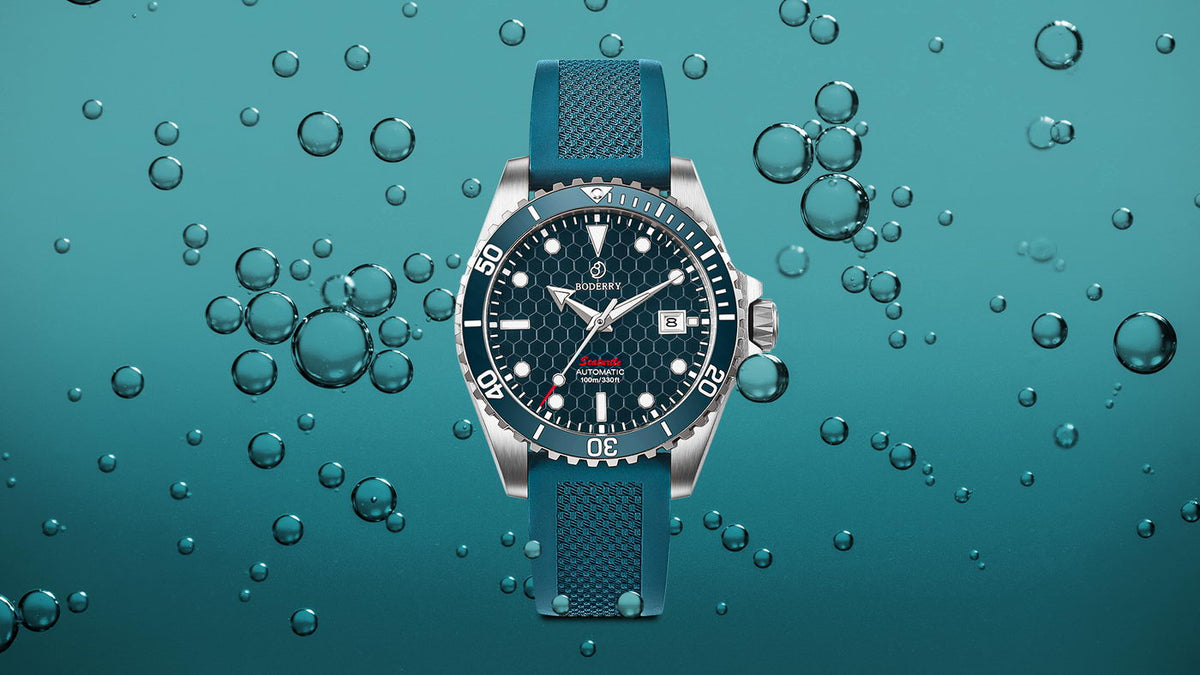
Why Does Boderry Love Titanium Watches?
|
Time to read 2 min
Cart
Your cart is empty
|
Time to read 2 min
Modern watchmaking has seen the emergence of timepieces crafted from titanium, a material first discovered in England in the 18th century. Titanium boasts a silver-white appearance and comes with a range of exceptional properties, including high strength, lightweight nature, superior corrosion resistance, resilience to extreme temperatures, and resistance to strong acids and bases. With half the density of steel, titanium offers excellent strength retention and far superior corrosion resistance in various environments. It's no wonder that titanium is widely used in aerospace, automotive, military, industrial, medical, outdoor, and jewelry applications.
Titanium ore is abundant, found in meteorites, lunar rocks, and even the sun and other planets. However, its extraction process is relatively slow and costly, contributing to its high market price. For many years, the steep cost of titanium limited its use in military and aviation industries.
In the realm of watchmaking, titanium watches have gained popularity for being lighter and more corrosion-resistant compared to stainless steel counterparts. While there are still fewer titanium watches in circulation compared to stainless steel, the number of titanium timepieces available has been steadily increasing.
Reduced Weight: Titanium watches are significantly lighter than their stainless steel or precious metal counterparts. This lightness enhances wear comfort, especially with larger-sized watches.
Scratch Resistance: The scratch resistance of titanium provides a major advantage, reducing the risk of unsightly blemishes. While precious metal watches can be polished to remove scratches, titanium's scratch resistance further minimizes this concern.
Pressure Resistance: Titanium's exceptional strength-to-weight ratio makes it a favored material for professional dive watches. Its resistance to deformation under pressure ensures the watch remains intact even at great depths.
Corrosion Resistance: Titanium has outstanding corrosion resistance, forming a tight, protective oxide layer when exposed to air. This makes it highly resilient to various corrosive substances, particularly in saltwater environments.
Versatile Aesthetics: Titanium's ability to change colors when subjected to electrical currents provides a unique visual appeal. From vibrant blues to mystical purples and deep greens, titanium watches can showcase a wide range of captivating hues.
Complex Manufacturing: While titanium offers a plethora of benefits, its complex refinement and high technical demands have limited its widespread use. This complexity contributes to the higher price point of titanium watches compared to stainless steel.
In conclusion, the allure of titanium watches lies in their lightweight yet robust nature, resistance to wear and corrosion, and the intriguing potential for colorful aesthetics. While they may come at a premium, the advantages of titanium watches are substantial, making them a sought-after choice for both watch enthusiasts and professionals alike. Boderry recognizes these qualities and embraces titanium as a valued material in its watchmaking endeavors.



